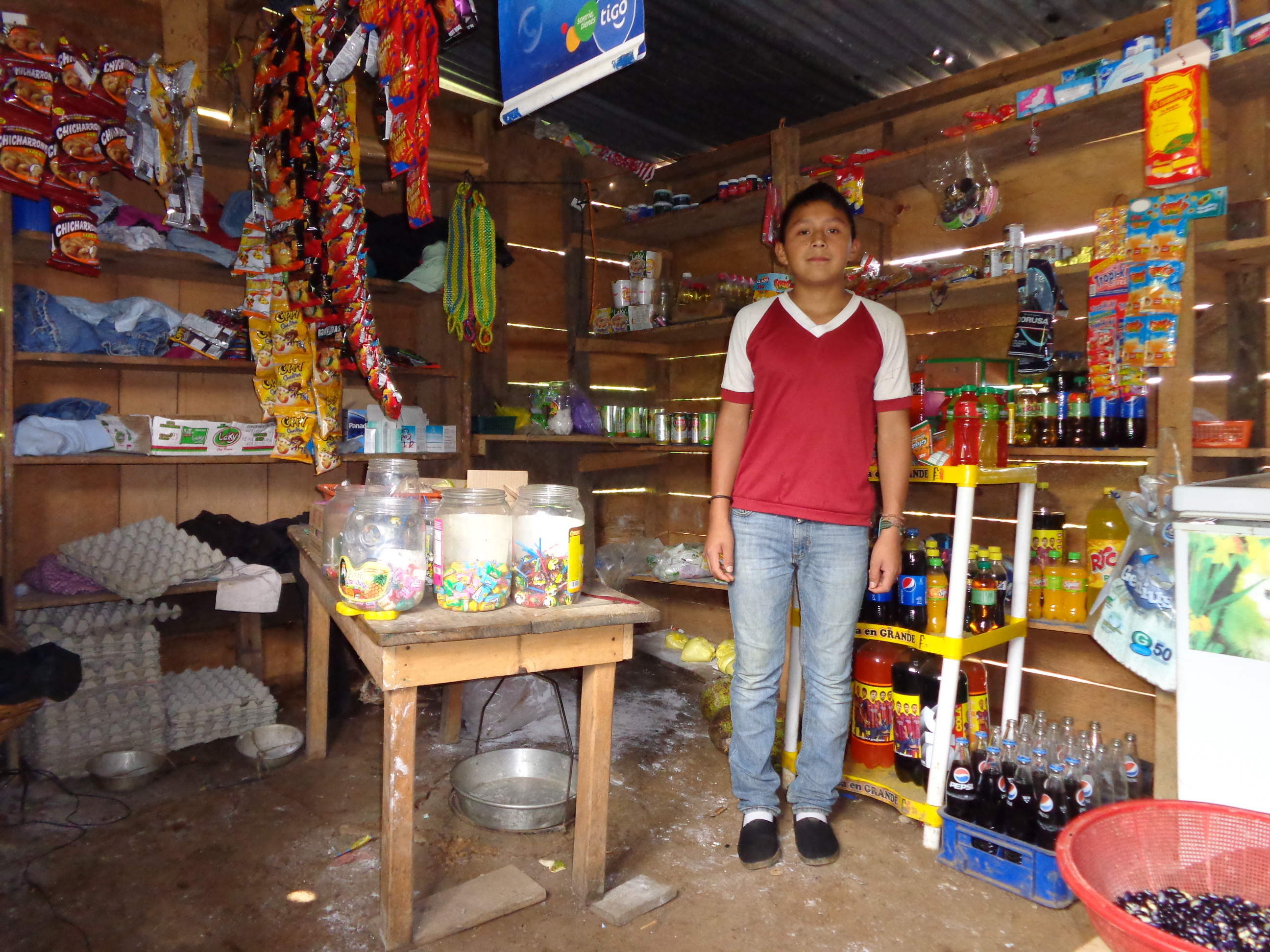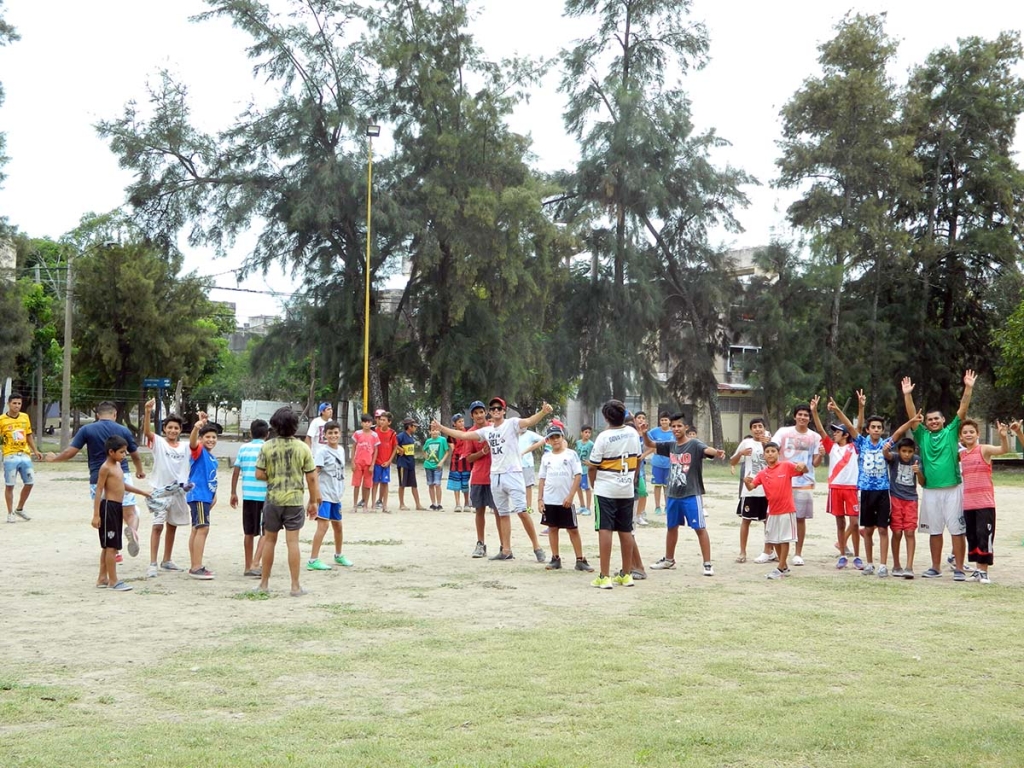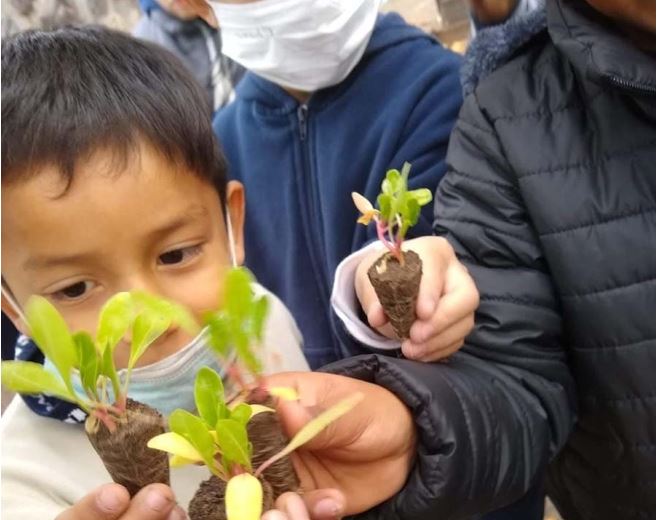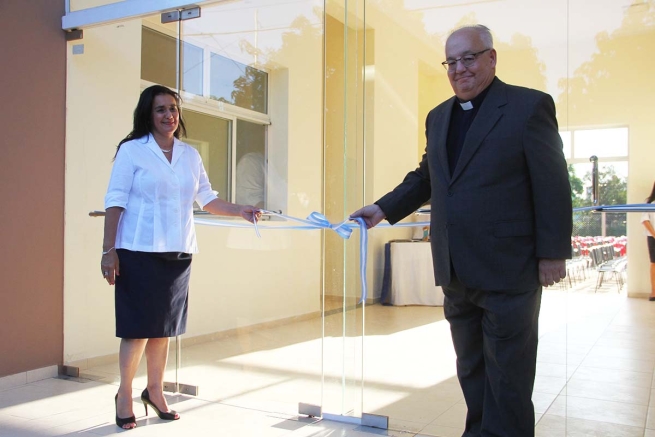GUATEMALA: Salesian Students Receive TOMS Shoes, are Healthier and Better Prepared for School

(MissionNewswire) Youth involved with the Salesian-run Foundation for the Development and Education of Indigenous Women in Guatemala, also known as “Talita Kumi”, have new shoes as a result of an ongoing partnership between Salesian Missions and TOMS, a company that matches every pair of shoes purchased with a pair of new shoes given to a child in need. Salesian Missions is one of TOMS One for One® giving partners.
In May 2012, TOMS began distributing shoes to youth in communities served by the Talita Kumi Foundation. Talita Kumi is present in more than 1000 indigenous communities in Northern Guatemala and serves more than 88,000 school-aged children. TOMS shoes are provided to families that participate in Talita Kumi’s education, health and economic development programs.
Youth living in rural Guatemalan communities are constantly on the move but lack options for transportation and normally do not have enough money to buy shoes. To get to school, students must walk close to 30 minutes on rocky, wet trails through the mountains. While at school, students participate in classroom learning while also engaging in outdoor sports and recreation activities. After returning home, students are often expected to help their parents perform tasks such as farming, milking cows, caring for animals and gathering wood for fires. Without shoes, these young people are at-risk for injury and diseases such as parasites, skin fungus and respiratory diseases, among others.
“When children are protected from the various illnesses and injuries associated with traveling barefoot they are better able to participate and focus in classes,” says Jessica O’Connor, property and logistics officer at the Salesian Missions Office for International Programs. “Many schools ask parents to invest in required school clothing forcing families to prioritize which children they can send to school. Distributing shoes will open the way for more children to attend school, especially for girls who are often left behind at home.”
As a result of TOMS shoes, youth enrollment and participation in school has increased and students are more prepared for school activities. Shoes also provide students with a sense of dignity. Angel, an 11 year old recipient of TOMS shoes, previously endured a painful walk to school barefoot in mud, rain and over rocks. As a result of the shoes, the trip to school is safer and easier.
“I was so excited, I really like them because they are very comfortable, soft, and weigh nothing. I would like to have them for a long time to go to school with. I no longer have diseases on my feet and I use them to play with my friends at school,” says Angel describing the new shoes.
The Talita Kumi Foundation’s health programs currently serve more than 80,400 school-age children. Salesian missionaries at the Foundation work to combat malnutrition among its program participants and decrease the rates of maternal, infant and general mortality through primary health-care and training of families and community organizations. When youth are suffering from diseases contracted by walking around barefoot, it is more difficult to combat malnutrition. By improving the health of the children, Talita Kumi can alleviate the physical and economic strain of repeated medical visits and improve the food security and nutrition of the population, especially among women and children.
“One of the methods that Salesian missionaries teach on the topic of health and welfare is the use of footwear for children,” adds O’Connor. “However, many families cannot afford to buy shoes for their children. By distributing shoes to the children in Salesian programs, we can improve the health of individual children while also stressing the importance of wearing shoes among the community in general.”
Rural poverty hasn’t changed much in Guatemala during the last 20 years, according to the World Bank. Close to 75 percent of the population is estimated to live below the poverty line and almost 58 percent live below the extreme poverty line which the World Bank defines as struggling to afford even a basic basket of food. For the country’s indigenous population the poverty rates jump even higher with almost 90 percent facing crippling poverty and few resources.
Salesian missionaries working and living in the country have been providing for poor youth’s basic needs while helping them to break the cycle of poverty. Through Salesian youth centers, orphanages, parishes, primary and secondary schools as well as technical schools, vocational training workshops and two universities, Salesian missionaries work extensively with poor youth and their families. In addition, there are many Salesian programs throughout the country, some of which help provide for youth living on the streets while others offer social and educational opportunities to those living in poor indigenous communities.
ABOUT TOMS:
In 2006, American traveler Blake Mycoskie befriended children in a village in Argentina and found they had no shoes to protect their feet. Wanting to help, he created TOMS, a company that would match every pair of shoes purchased with a pair of new shoes given to a child in need. One for One®.
Five years later, TOMS realized this movement could serve other basic needs and launched TOMS Eyewear. With every pair of eyewear purchased, TOMS will help give sight to a person in need. One for One®. As more everyday choices have the power to impact the lives of those around the world, the TOMS movement will continue to grow and evolve.
In 2013, Blake Mycoskie announced that through its Giving Partners, TOMS has hand-placed over 10 million pairs of new shoes on children in need and has helped give sight to over 150,000 people around the world. The success of TOMS’ One for One® business model has led to a continued evolution of its giving efforts, with the company making major investments in its shoe manufacturing, economic empowerment and commissioned field research while developing product partnerships that have raised millions of dollars for non-profit organizations.
ABOUT SALESIAN MISSIONS:
Salesian Missions is headquartered in New Rochelle, NY, and is part of the Don Bosco Network—a worldwide federation of Salesian NGOs. The mission of the U.S.-based nonprofit Catholic organization is to raise funds for international programs that serve youth and families in poor communities around the globe. Salesian missionaries are made up of priests, brothers and sisters as well as laypeople—all dedicated to caring for poor children throughout the world in more than 130 countries. To date, more than 3 million youth have received services funded by Salesian Missions. These services and programs are provided to children regardless of race or religion. For more information, go to SalesianMissions.org.




